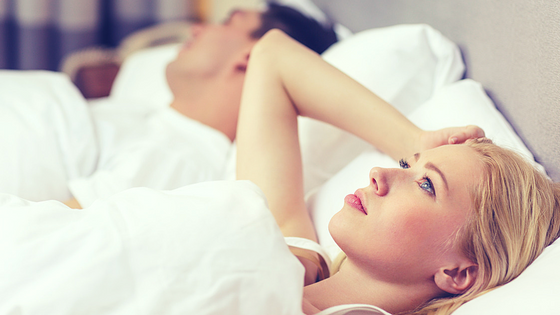Sleep deprivation and exhaustion among new parents is almost universally laughed at in the United States – after all, you have to laugh to keep from crying, right? Jokes and quips about being awake all night with our babies have almost become part of a unique culture (see also: “wine mom” culture and “coffee mom” culture!). #teamnosleep
However, what if we told you that sleep deprivation isn't just a rite of passage parents have to grit their teeth through: it's actually a public health issue?
It may sound surprising, but not getting adequate sleep each night takes enough of a toll on our physical and mental health that it can eventually completely break down our chances of staying healthy in the future.
Sleep deprivation increases the risks of infections, diabetes, high blood pressure, and many chronic diseases. However, some of the other problems it can cause or worsen will sound a little more familiar to those with young children:
- Depression and Anxiety
Research suggests that at least 20% or more of postpartum parents suffer from depression and/or anxiety disorders. While there are a lot of different factors that go into perinatal mood disorders including hormonal changes, sleep deprivation is proven to exacerbate the symptoms. - Constantly Getting Sick
If you feel like you and your little ones seem to catch every bug you come into contact with, your immune system may be weakened due to sleep deprivation. Your chances of getting diagnosed with cancer and dementia also increase due to lack of adequate sleep. - Loss of Emotional Control
Lack of sleep contributes to mood swings and makes us more likely to yell and snap over small annoyances and struggle to maintain relationships with those around us. - Reduced Mental Sharpness
Not only do we do things like put the keys in the fridge (“it'll seem funny someday”, right?), we also become more likely to freeze or panic under stress, make poor decisions, forget what we went to another room for, and struggle with memory loss. - Inability to Lose Weight
Now, societal beauty standard pressures are a whole 'nother post, but if we're honest most moms struggle with body image after giving birth and make some form of attempt to lose any weight they may have gained during pregnancy. Sleep deprivation's effects make it easier to gain weight, more difficult or even impossible for some women to lose weight, further contributing to feelings of anger, guilt, and depression.
You or someone close to you may struggle with postpartum depression and/or anxiety, which are exacerbated by not getting enough restorative sleep at night. It's not normal, or safe, or okay, even though our culture likes to shrug and say “this too shall pass”, instead of helping an exhausted mom get some relief. There's a reason sleep deprivation has been used in some cultures as a form of torture!
You need to be well for your babies. You don't need to try to power through it, assuming that because everyone told you parenting was hard, this must just be the way it is. Babies can be gently taught through good habits the difference between day and night, and you can train yourself to go to bed early once that happens.
How to Wipe Out Sleep Deprivation
So how can you protect your – and your baby's – health and stave off sleep deprivation?
1. Work with your baby
By all means, snuggle and cuddle and love on your little one as much as you want, but you can also get them into some good habits from day one to guide their future sleep health. Keep the lights off or very dim during the night, and avoid talking or playing during nighttime feedings to establish the difference between sleep time and awake time. During the day, a feed > play > sleep routine encourages them not to rely on parental intervention every time they must fall asleep.
2. Seek out local resources
Our overnight care specialists take the night shift at your house, making sure you get a blissful night of sleep while your baby is in the absolute best hands. Or, invest in a permanent change and a lifetime of healthy sleep habits with our certified sleep coach's in-home program, which is guaranteed to have your baby sleeping through the night in no time at all.
3. Sleep train yourself
Once your baby learns how to sleep well at night, your mind and body may still struggle with not being constantly awakened. Blackout curtains, white noise apps, a consistent early bedtime, and a no-screens rule at least one hour before bed will help you retrain yourself to remember that nighttime is sleeping time, and you'll be able to stay asleep for a longer stretch of time along with your baby.
Sleep deprivation doesn't have to wreck your parenting experience – and your future health. You can take back control by implementing a few changes and start to remember what it feels like to wake up rested, refreshed, and ready to say good morning to your family and start the day.


